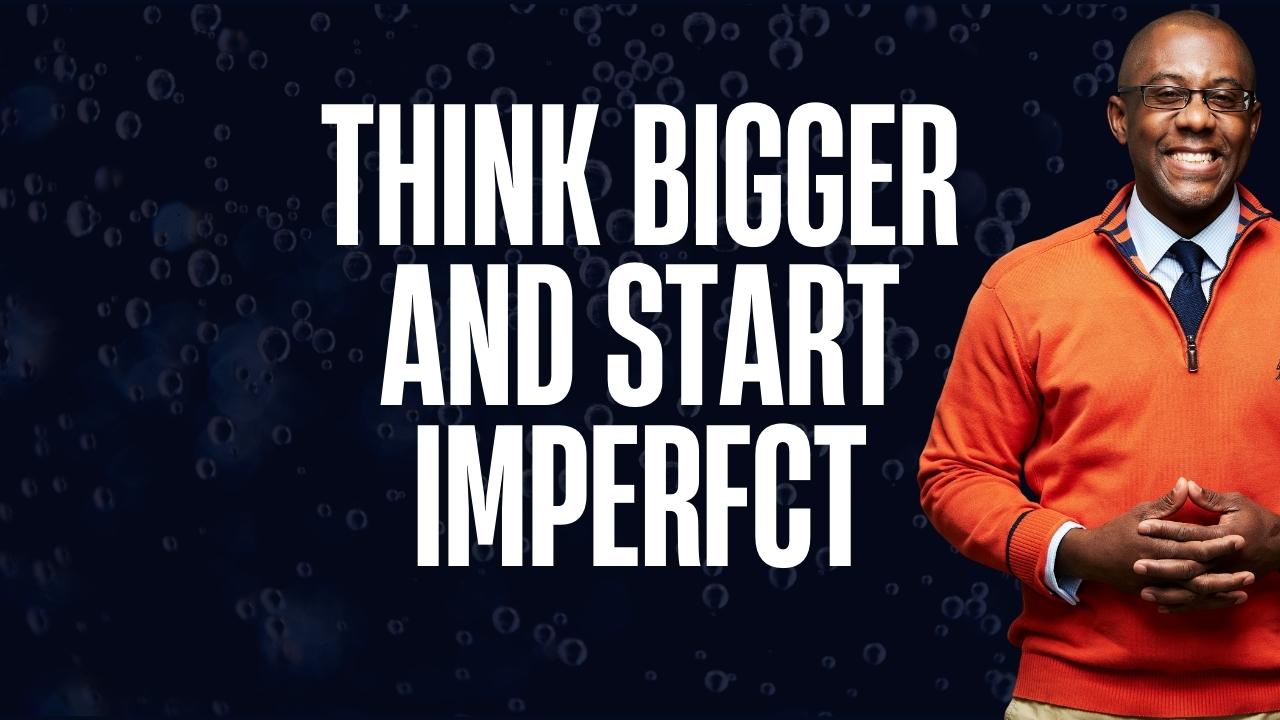Businesses must understand that consumer behavior and marketing strategy go hand in hand, especially for a successful campaign.
Usually, business owners market their products based on shifts in consumer preferences. Entrepreneurs who respond to these shifts will surely have a fair chance in the market compared to those who don’t.
So, have you ever designed a marketing strategy before? And on what basis did you create it?
Let us explore the relationship between consumer behavior and marketing strategy and how you can leverage it to grow your business.
What is Consumer Behavior?
Consumer behavior refers to the actions and decisions that consumers make when purchasing and using products or services. It’s a complex field studied by marketers, psychologists, economists, and sociologists, among others.
Consumer behavior is complex and can be influenced by a wide range of factors. For example, personal, social, cultural, and situational factors can significantly alter customers’ preferences and values. As a result, marketing strategies should be reviewed to meet new demands and choices.
However, consumer behavior is constantly changing, and these changes can have an incredible impact on business success.
An Overview of the Forms of Changing Consumer Behavior
There are several forms and aspects of consumer behavior. Below are some behaviors that can significantly affect marketing strategies:
Routine Response Behavior
Routine response consumer behavior is characterized by automatic buying decisions based on habit and convenience. As a result, the consumers may not extensively evaluate other alternatives. Instead, they will stick to familiar brands or products.
2. Limited Decision Making
Unlike consumers who exhibit routine response behavior, consumers who exhibit limited decision-making make some effort to compare their options. However, they don’t do their research extensively, as seen in extensive decision-making behavior.
Therefore, this behavior falls between routine response and extensive decision-making. Most often, these consumers seek information about products or services that are somewhat important but not overly significant in their lives.
This behavior usually occurs when consumers are somewhat familiar with the product category. However, they may still evaluate a few alternatives before making a choice.
3. Extensive Decision Making
Consumers with this behavior engage in extensive information search, comparison, and evaluation before making a purchase decision. This is usually common for high-involvement products or services that are expensive and risky. In addition, these products or services have significant long-term consequences.
Consumers engage in thorough information gathering from various sources such as:
- Product reviews
- Expert opinions
- Company websites
- Comparison websites
- Social networks.
As mentioned earlier, this behavior occurs when the product is expensive, risky, or significantly affects the life of the consumer. Some examples of situations that may trigger extensive decision-making are:
- Buying a house
- Selecting a college or university
- Choosing a healthcare provider or treatment
- Purchasing expensive technology or luxury items
4. Impulse Buying
Impulse buying is a consumer behavior that involves making unplanned purchases on a whim. Emotions, urges, or situational factors often drive it. It’s common for low-cost items or items with solid promotional cues. Therefore, it can occur both in online and offline environments.
For example, they are always associated with products that are:
- Visually appealing
- Heavily promoted
- Strategically placed to capture consumers’ attention
While impulse buying can provide immediate gratification, it may also lead to post-purchase regret. Because later, the consumer feels the buyer’s remorse when they realize that the purchase was unnecessary or impractical.
5. Brand Loyalty
In this behavior, consumers exhibit loyalty to particular brands, often making repeat purchases without considering alternatives. It’s usually influenced by factors such as product quality, perceived value, emotional attachment, previous buying satisfaction, or social status.
Naturally, brand loyalty is often based on positive experiences and satisfaction with the product or service. Brand-loyal consumers have a high level of trust and confidence in the brand’s quality, reliability, and performance.
Brand-loyal consumers often believe that the brand will consistently deliver on its promises and meet their expectations.
6. Online Consumer Behavior
These are convenience shoppers who utilize e-commerce and the internet in the best possible way. This behavior is becoming increasingly valuable to brands, especially with the increase in social media access.
As mentioned earlier, convenience is a significant driver of online shopping behavior. Consumers appreciate the ability to shop anytime, anywhere, without the constraints of store hours or geographical limitations. Therefore, features such as one-click purchasing, saved payment information., and fast shipping options contribute to a seamless online shopping experience.
Since consumers can now make purchases from anywhere in the world today, online consumers are more concerned about the following:
- Website usability
- Online reviews
- Trust in online transactions
- Factors specific to digital marketing channels
An Overview of the Factors Influencing Consumer Behavior
Here are some factors that influence consumer buying behavior that businesses should be aware of:
Psychological Factors
Many psychological factors influence our everyday decisions. This is especially evident in the consumer buying behaviors. These factors include perception, motivation, attitudes, beliefs, values, and personality traits.
Social Factors
Consumers’ purchasing decisions are often influenced by social factors such as family, friends, culture, and societal norms.
And now, with the increase in social media use and trends, consumers feel the need to interact with others online. To make purchases, they seek product recommendations, reviews, and endorsements from their social networks on social media platforms.
Economic Factors
Economic factors such as income levels, current financial circumstances, and value perceptions can influence consumer buying behavior. In other words, we are talking about budget-conscious consumers.
For businesses to get through to these consumers, they may have to adjust their pricing strategies and promotional offers. It can help them mitigate the impact of economic fluctuations on their consumers.
Technological Factors
Technologies and recent innovations have transformed consumer behaviors. It has empowered consumers with instant access to information, reviews, and comparison shopping. Tech-savvy consumers usually resort to social media before making a purchase.
Consumer Behavior and Marketing Strategy- What Businesses Should Know
Consumer behavior plays a fundamental role in shaping marketing strategy. This is because it provides insights into how consumers think, feel, and act when making purchasing decisions.
By understanding consumer behavior, marketers can develop more effective strategies to attract, engage, and retain customers.
Read: What Are the Benefits of Studying Consumer Behavior?
The following are the roles of consumer behavior in business and marketing strategies:
1. Targeted Marketing
Consumer behavior insights enable businesses to segment their target market effectively. In other words, marketers identify distinct consumer groups so they can tailor their messaging and offerings.
Distinct groups of consumers are classified based on the following:
- Demographics
- Psychographics
- Behavioral patterns
Studying and understanding target groups allows brands to create products and services that resonate with each group’s unique needs and preferences.
2. Product Development and Innovation
Understanding consumer needs, preferences, and pain points allows marketers to identify opportunities for product development and innovation. Also, by gathering feedback from consumers and analyzing market trends, marketers can create products that address unmet needs.
Consumer behavior insights inspire innovation by challenging companies to think creatively and develop products that offer unique value propositions. Likewise, those products that exhibit differentiation in the marketplace can be identified through consumer behavior insights.
In addition, gathering feedback allows brands to improve existing products to boost customer satisfaction. It helps them differentiate themselves from competitors.
3. Brand Positioning
Consumer behavior insights inform brand positioning strategies. It helps marketers understand how consumers perceive their brand relative to competitors.
Marketers can leverage consumer perceptions, attitudes, and beliefs to position their brand in consumers’ minds effectively. Moreover, they can use this to communicate unique value propositions that differentiate their brand from competitors.
4. Pricing Strategies
Consumer behavior analysis influences pricing strategies. It provides insights into consumers’ price sensitivity, willingness to pay, and perceptions of value. In addition, consumer behavior analysis helps companies understand how sensitive consumers are to changes in price.
Nonetheless, marketers can adjust pricing strategies based on consumer demand, market dynamics, and competitive pricing. This strategy is used solely to maximize profitability while remaining competitive in the market.
5. Promotional Strategies
Consumer behavior insights help marketers make the right promotion call in their strategies. These insights help marketers identify the most effective channels, messages, and tactics to reach and engage target audiences.
Furthermore, marketers can develop targeted promotional campaigns that resonate with consumers and drive desired outcomes. To achieve this, marketers should understand the following factors to seek out the best promotional strategies:
- Consumers’ media consumption habits
- Information-seeking behavior
- Decision-making processes
6. Distribution Channels
Consumer behavior guides decisions regarding distribution channels and retail strategies. Business owners and marketers should understand where and how consumers prefer to shop.
Consumer buying insights can help marketers optimize distribution channels, expand market reach, and enhance the shopping experience. Furthermore, knowing the distribution channels helps marketers and businesses meet consumers’ evolving needs and preferences.
7. Customer Experience and Relationship Management
Knowing consumer behavior and using the right strategies can help businesses to deliver exceptional customer experiences.
When consumers’ expectations, preferences, and pain points throughout the customer journey are met, trust and loyalty can be achieved. This makes building long-term relationships with customers possible.
In turn, having better relationships with customers can help marketers and business owners design personalized experiences, provide superior customer service, and foster customer advocacy.
How To Get Consumer Behavior Insights for Marketing Strategies
Marketers must conduct deep research to understand consumer behavior. Business owners and marketers can employ various research methods.
Here are examples of some research methods that can help marketers gain insights into consumer preferences and buying behavior:
- Surveys
- Focus groups
- Interviews
- Observation
- Data Analytics
By collecting and analyzing these consumer data, businesses can gain actionable insights into consumer preferences, trends, and purchasing patterns. As a result, they will make informed marketing decisions to grow their business.
Read: 12 Consumer Behavior Trends To Watch Out for in 2024
Conclusion: The Power of Consumer Behavior
Businesses must understand the relationship between consumer behavior and marketing strategy to grow and sustain their business. Consumer behavior serves as the cornerstone upon which effective marketing strategies are built.
Therefore, by comprehensively analyzing consumer behavior, businesses gain insights into consumer’s decision-making processes. As a result, they can effectively target their audience, create compelling campaigns, drive sales, and build lasting relationships with customers.
Frequently Asked Questions
Emotional factors can also significantly influence consumer behavior. In fact, many studies in psychology and marketing have shown that emotions play a crucial role in shaping consumers’ decisions. However, positive emotional experiences with a product or service can lead to word-of-mouth recommendations and advocacy.
Furthermore, emotions can influence how consumers perceive the value of a product or service. For example, a consumer pays more for a product they believe will make them feel happy or confident.
Consumer behavior influences various specific types of marketing strategies significantly. Hence, the following resulted from consumer behavior research:
(a) Personalized marketing that includes targeted emails, product recommendations, and customized promotions
(b) Content marketing, such as blog posts, videos, and infographics that attract and engage target audiences
(c) Influencer marketing partnering with influencers who have a genuine connection with their followers
(d) Behavioral retargeting that involves targeting consumers with ads based on their previous online interactions
(e) Loyalty programs that include rewards, incentives, and personalized offers that encourage repeat purchases and foster brand loyalty
(f) Seasonal and trend-based marketing, such as seasonal trends, holidays, and cultural events that resonate with target audiences
Marketers use different ways to carry out consumer behavior research to gain insights into consumer preferences. The following are common research methods used by marketers:
(a) Surveys and questionnaires
(b) Focus groups
(c) Interviews
(d) Observational research
(e) Social media monitoring
(f) Online Analytics
(g)Purchase history analysis
(h) Psychographic profiling
(i) Experimental research
(j) Neuromarketing
Many types of businesses can benefit significantly from exploring consumer behavior. The following are examples of businesses that can significantly benefit from understanding consumer behavior:
(a) Retailers
(b) Consumer goods companies
(c) Hospitality and Tourism industry
(d) Financial services providers
(e) Technology companies
(f) Healthcare providers
(g) Automotive industry
(h) Entertainment and media company
Related Posts:
- How Your Business Can Stand Out in a Crowded Market
- New Intuit Mailchimp Features Optimize Small Business Marketing
- Six Proven Ways to Maximize Your Marketing Efforts. Mailchimp Study
- Are You Marketing To the Right Person? People Are Buying.
- Adobe Research Says Consumers, Not Just Businesses, are Embracing AI












